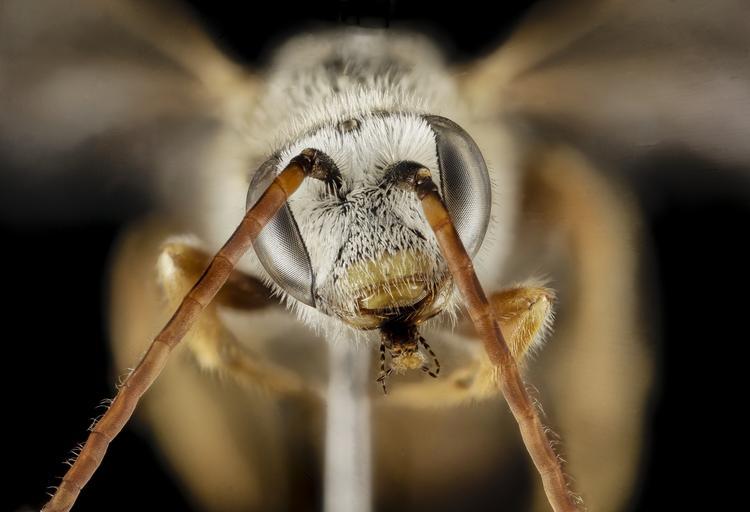MAKE A MEME
View Large Image

| View Original: | Halictus_brunnescens,_M,_Face,_Greece,_Aegan_Islands,_Lesvos,_Mytilene_2015-03-06-10.59.55_ZS_PMax.jpg (5487x3744) | |||
| Download: | Original | Medium | Small | Thumb |
| Courtesy of: | www.flickr.com | More Like This | ||
| Keywords: halictus halictidate halictus brunnescens halictusbrunnescens taxonomy:binomial=halictus brunnescens taxonomy:binomial=halictusbrunnescens bee bees droege biml usgsbiml male europe lesvos greece islands zerene stacker zerenestacker stackshot patuxent wildlife research center patuxentwildliferesearchcenter united states geological survey unitedstatesgeologicalsurvey native bee nativebee animal depth of field macro Halictus brunnescens: probably the largest species of Halictus in the Mediterranean region of Europe, together with its sibling species Halictus quadricinctus. They are usually found on large purple thistles. In early summer you can see the females digging themselves into the flower to reach the nectar. Picture taken by Sara Guerriera. ~~~~~~~~~~{{{{{{0}}}}}}~~~~~~~~~~ All photographs are public domain, feel free to download and use as you wish. Photography Information: Canon Mark II 5D, Zerene Stacker, Stackshot Sled, 65mm Canon MP-E 1-5X macro lens, Twin Macro Flash in Styrofoam Cooler, F5.0, ISO 100, Shutter Speed 200 The grass so little has to do, A sphere of simple green, With only butterflies to brood, And bees to entertain, - Emily Dickinson Want some Useful Links to the Techniques We Use? Well now here you go Citizen: Basic USGSBIML set up: www.youtube.com/watch?v=S-_yvIsucOY USGSBIML Photoshopping Technique: Note that we now have added using the burn tool at 50% opacity set to shadows to clean up the halos that bleed into the black background from "hot" color sections of the picture. www.youtube.com/watch?v=Bdmx_8zqvN4 PDF of Basic USGSBIML Photography Set Up: ftp://ftpext.usgs.gov/pub/er/md/laurel/Droege/How%20to%20Take%20MacroPhotographs%20of%20Insects%20BIML%20Lab2.pdf Google Hangout Demonstration of Techniques: plus.google.com/events/c5569losvskrv2nu606ltof8odo or www.youtube.com/watch?v=4c15neFttoU Excellent Technical Form on Stacking: www.photomacrography.net/ Contact information: Sam Droege sdroege@usgs.gov 301 497 5840 Halictus brunnescens: probably the largest species of Halictus in the Mediterranean region of Europe, together with its sibling species Halictus quadricinctus. They are usually found on large purple thistles. In early summer you can see the females digging themselves into the flower to reach the nectar. Picture taken by Sara Guerriera. ~~~~~~~~~~{{{{{{0}}}}}}~~~~~~~~~~ All photographs are public domain, feel free to download and use as you wish. Photography Information: Canon Mark II 5D, Zerene Stacker, Stackshot Sled, 65mm Canon MP-E 1-5X macro lens, Twin Macro Flash in Styrofoam Cooler, F5.0, ISO 100, Shutter Speed 200 The grass so little has to do, A sphere of simple green, With only butterflies to brood, And bees to entertain, - Emily Dickinson Want some Useful Links to the Techniques We Use? Well now here you go Citizen: Basic USGSBIML set up: www.youtube.com/watch?v=S-_yvIsucOY USGSBIML Photoshopping Technique: Note that we now have added using the burn tool at 50% opacity set to shadows to clean up the halos that bleed into the black background from "hot" color sections of the picture. www.youtube.com/watch?v=Bdmx_8zqvN4 PDF of Basic USGSBIML Photography Set Up: ftp://ftpext.usgs.gov/pub/er/md/laurel/Droege/How%20to%20Take%20MacroPhotographs%20of%20Insects%20BIML%20Lab2.pdf Google Hangout Demonstration of Techniques: plus.google.com/events/c5569losvskrv2nu606ltof8odo or www.youtube.com/watch?v=4c15neFttoU Excellent Technical Form on Stacking: www.photomacrography.net/ Contact information: Sam Droege sdroege@usgs.gov 301 497 5840 | ||||